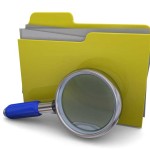 Personal Records Retention
Personal Records Retention
What to Keep
We tend not to think much about keeping important papers – that is, until an emergency occurs or the Internal Revenue Service comes calling!
Keeping good records is important because:
• Records help in estate settlement and insurance or benefit claims
• Death, fire or theft may call for records to establish ownership
• Records help substantiate income tax deductions.
• If someone makes a mistake or official records are destroyed, your records may be needed.
• Your past records can help you plan future spending and keep tabs on your current and past financial situation.
• Records could shorten the time it takes to collect insurance, military benefits, veteran’s benefits or an income tax refund.
• And much more!
Here is a list of records you should keep as well as where you should keep them and how long you should keep them. Note: This information is from “Family Records: What to Keep Where and For How Long,” by the North Dakota State University Extension Service, Fargo, N.D.”
Guide For Family Records – PERSONAL and FAMILY
| Item | Where | How Long |
| Birth, marriage and death certificates | Safe deposit box or fireproof home storage | Permanently |
| Adoption and custody papers | Safe deposit box or fireproof home storage | Permanently |
| Citizenship papers | Safe deposit box or fireproof home storage | Permanently |
| Divorce and separation papers | Safe deposit box or fireproof home storage | Permanently |
| Settlement agreements | Safe deposit box or fireproof home storage | Permanently |
| Military papers | Safe deposit box or fireproof home storage | Permanently |
| Will | Signed original with probate division of circuit court or safe deposit box (if jointly rented); copy in home file | As long as in effect |
| Advance directive (living will/durablepower of attorney for health care) | Home File, Safe deposit box and copies with agents and family members | Permanently (update as needed) |
| Passports | Home storage or safe deposit box | Until replaced |
| Social security card | Carry card; stub in home storage | Permanently |
| Diplomas, transcripts | Home storage or safe deposit box | Permanently |
| Medical history | Home file | Permanently (update as needed) |
| Employment records | Home file | Permanently |
| Inventory of valuable papers and advisors | Home file; copy with trusted family member or friend | Permanently (update at least annually) |
Guide For Family Records – PROPERTY
| Item | Where | How Long |
| Real property deeds, title papers, abstracts, mortgage and other lien documents (include rental property) | Safe deposit box | Duration of ownership or longer if needed for tax purposes |
| Burial lot deed | Safe deposit box | Duration of ownership |
| Tax assessment notices, purchase contracts, records of capital improvements (include rental property) | Safe deposit box | Duration of ownership or longer if needed for tax purposes |
| Motor vehicle titles, purchase receipts and licenses | Safe deposit box | Duration of ownership |
| Records of auto service/repair | Home file | Duration of ownership |
| Jewelry and other valuable items | Safe deposit box if safety of family may be threatened if kept in home | Duration of ownership |
| Inventory of household goods and appraisals (include rental property) | Safe deposit box; copy in home file | Permanent (update at least once a year) |
| Auto insurance card and registration | In vehicle (required by North Dakota State law) | Current only |
Guide For Family Records – FINANCIAL
| Item | Where | How Long |
| Stocks, bonds and other securities | Safe deposit box; listing in home file | Duration of ownership or longer if needed for tax purposes (usually up to six years) |
| Bank accounts, account registers and statements | Home file | Duration of ownership or longer if needed for tax purposes (usually up to six years) |
| Canceled checks | Home file for non-tax deductible expenditures | Three years minimum |
| Savings certificates | Safe deposit box; listing in home file | Duration of ownership or longer if needed for tax purposes (usually six years) |
| List of credit cards, credit contracts, agreements, records of credit payments and account statements | Home file | Duration of account or obligation or longer if needed for tax purposes (usually six years) |
| Insurance policies and records of claims made and paid | Home file; list of policies in safe deposit box | Permanently (update as needed) |
| Copies of past tax returns | Home file | Six years minimum |
| Receipts and records of deductible expenses, income and tax payments | Home file (current); fireproof home storage after filing of taxes | Six years minimum |


